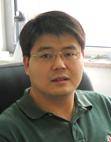
Feng Shao PhD
Infectious Disease, Research and Clinical Research
Beijing, Beijing, China
Connect with the speaker?
Dr. Feng Shao's laboratory is interested in studying molecular mechanisms of bacterial infection and host innate immunity defense. Bacterial pathogens use specialized secretion systems such as type III/IV secretion system to inject effector proteins into host cells, serving as a key and universal virulence mechanism. The effectors usually harbor a unique and potent activity that modulates the function of key signaling molecules in the host, and this plays a critical role in bacterial survival and systemic infections. Using pathogens such as Shigella, Salmonella, Enteropathogenic E. coli (EPEC), Legionella and Burkholderia as the model, we are working to discover and reveal some novel and common biochemical mechanisms utilized by bacterial effectors in modulating host signal transduction pathways. Our recent work has led to several interesting discoveries. 1) The OspF family of type III effectors, conserved in Shigella, Salmonella and the plant pathogen P. syringae, harbors a novel phosphothreonine lyase activity that specifically and irreversibly "dephosphorylates" host MAPKs, leading to kinase inactivation and inhibited cytokine production. 2) The Legionella type IV effector LegK1 mimics host IKK to phosphorylate IkBa, which results in ubiquitination and degradation of IkBa and consequent activation of host anti-apoptotic NF-kB signaling. 3) Type III effectors CHBP (Burkholderia) and Cif (EPEC) use a papain-like catalytic activity to deamidate ubiquitin and ubiquitin-like protein NEDD8. This leads to dysfunctioning of host ubiquitin-proteasome system, and therefore many important cellular processes such as cell cycle progression become abnormal. We believe that such kind of research and discovery is not only revealing in bacterial pathogenesis, but also provides an unprecedented unique angle for studying the mechanism of eukaryotic signal transduction. Meanwhile, we are also interested in how the host uses its innate immunity system to counteract bacterial infection, particularly the inflammasome pathway in macrophages. Macrophage senses many kinds of pathogen-derived molecular patterns and thereby activates the cytoplasmic inflammasome complex, and this leads to Il-1b production and inflammatory cell death of the macrophage. The NOD-like receptor in inflammasome is required for sensing bacteria-derived signals. However, little is known about how the inflammasome is assembled/activated, and the signaling cascade upstream of the inflammasome remains obscure. We are combining multiple approaches including biochemical reconstitution, cell biology and mouse genetics to identify new components in pathogen-induced inflammasome activation and to further reveal the underlying biochemical mechanism.

